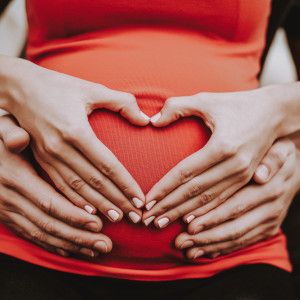Pregnancy and Back Pain Often Go Hand In Hand
The joys of pregnancy are often accompanied by some pains, too: fatigue, weight gain, swelling, and often, back pain.
According to the American College of Obstetricians and Gynecologists, back pain in pregnancy is common, and it has many possible causes. As the uterus expands, it moves your center of gravity forward, which gradually begins to change your posture and the way you move. The hormones of pregnancy, which cause the joints and muscles to relax and become loose, can also contribute to back pain.
“The majority of women experience low back pain, to varying degrees, during pregnancy,” says Dr. Hope Ricciotti, Chief of Obstetrics & Gynecology at Beth Israel Deaconess Medical Center.
“The pain usually occurs in the third trimester,” says Dr. Ricciotti. “The lower back has a curvature to it, which is exaggerated during pregnancy. Also, hormones cause the ligaments to soften during pregnancy, which adds to some of the discomfort.”
While bothersome, back pain is usually only a problem for the mother-to-be; rarely does it indicate a problem with the baby. And there are a few simple things that can help alleviate pain while waiting for the baby to arrive.
“Try sleeping with a pillow under your knees,” advises Dr. Ricciotti. “Warm showers and massage will help. And acetaminophen (Tylenol) may be used during pregnancy.
“High heels definitely make it worse, so wear low shoes,” she continues. “And avoid sitting for long periods. If you have to sit for a long period of time, like at work, try putting a stool under your feet and take frequent breaks to get up and walk around.”
The same goes for preventing low back pain in the first place. “The same things you do to treat back pain can help with prevention,” says Dr. Ricciotti. “Avoid high heels, use pillows for support when sleeping, stretch. And be careful with heavy lifting.”
In a few instances, even a bed full of pillows doesn’t help. Dr. Ricciotti suggests that if you try all of these remedies and you still have discomfort, or if the pain is severe and limits your daily activities, you should contact your doctor.
The good news: for most women, their pain disappears when the baby arrives. “The vast majority of women feel much better immediately following delivery,” says Dr. Ricciotti.
And as a final point, Dr. Ricciotti cautions that there is an “urban myth” that many of her patients ask her about. “There’s a myth that having an epidural during delivery leads to chronic back pain,” she says. “It’s important to point out that there is no association between the two, and it should not factor into your decision regarding whether to have an epidural.”
This is a paid partnership between Beth Israel Deaconess Medical Center and Boston Magazine



